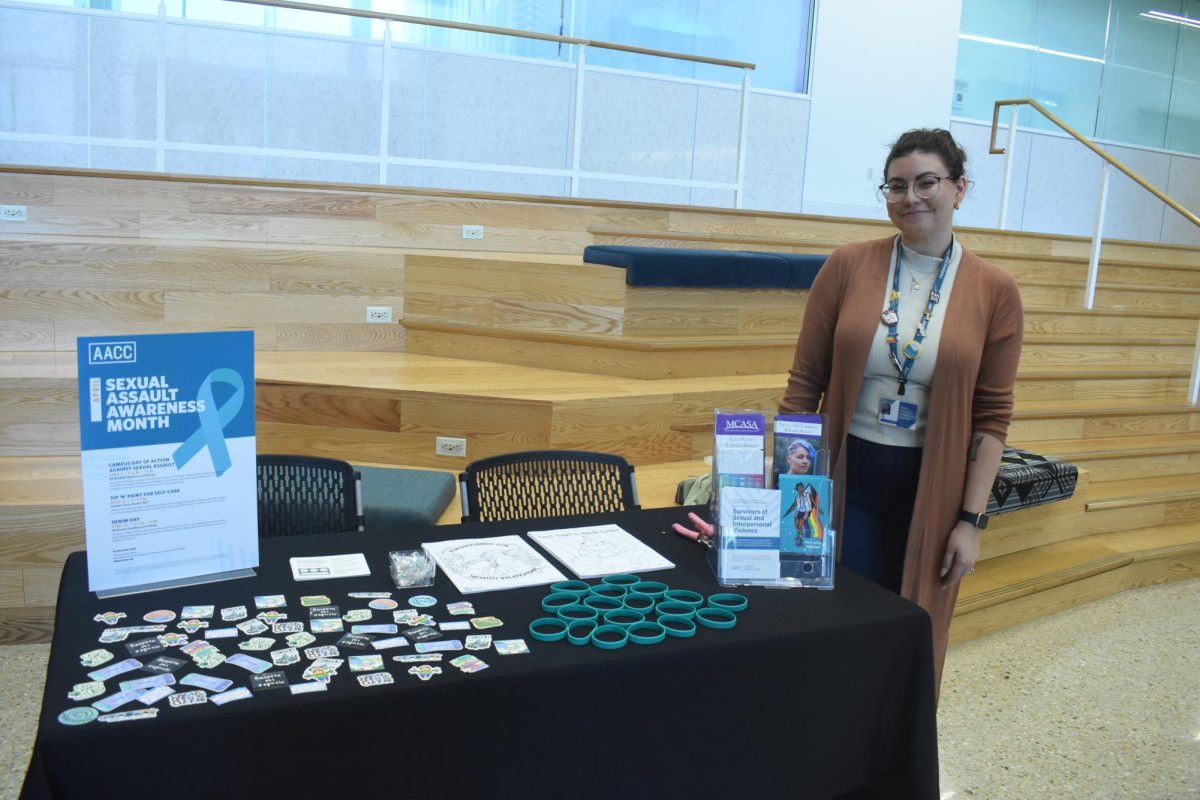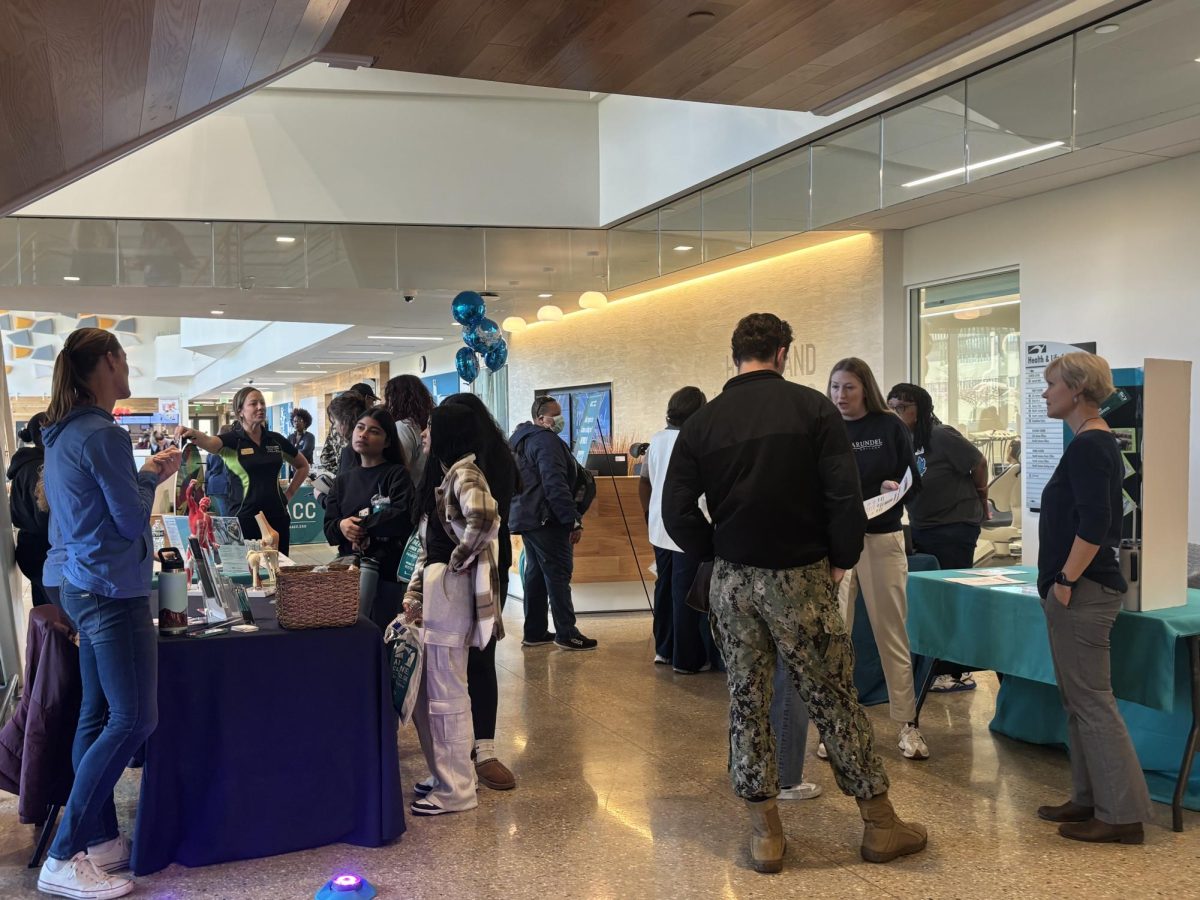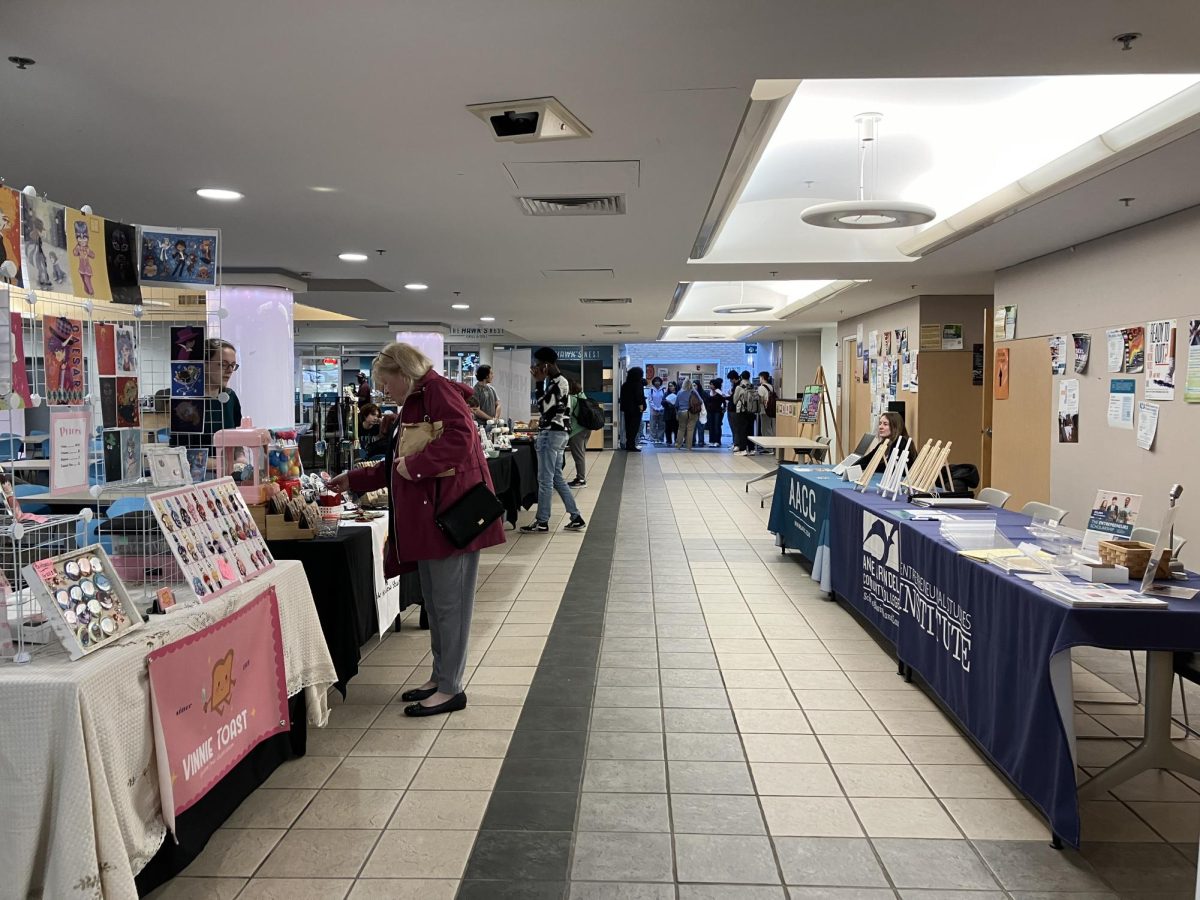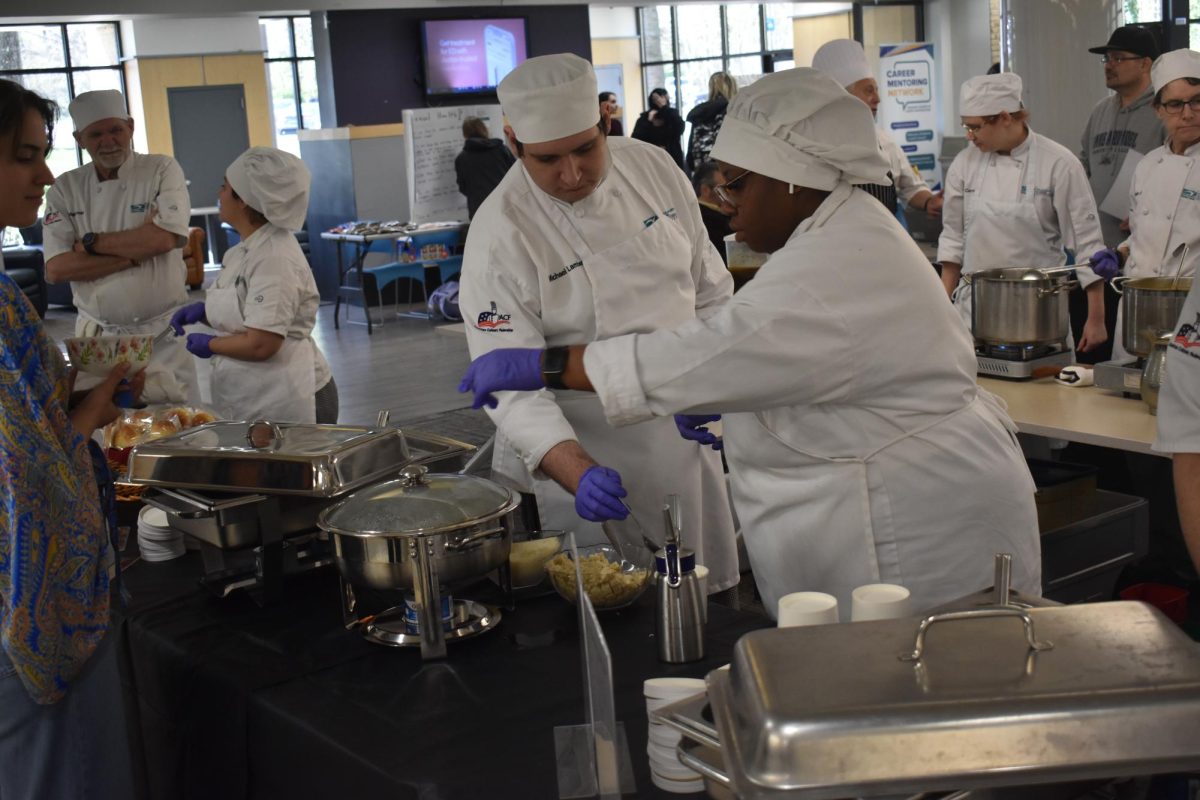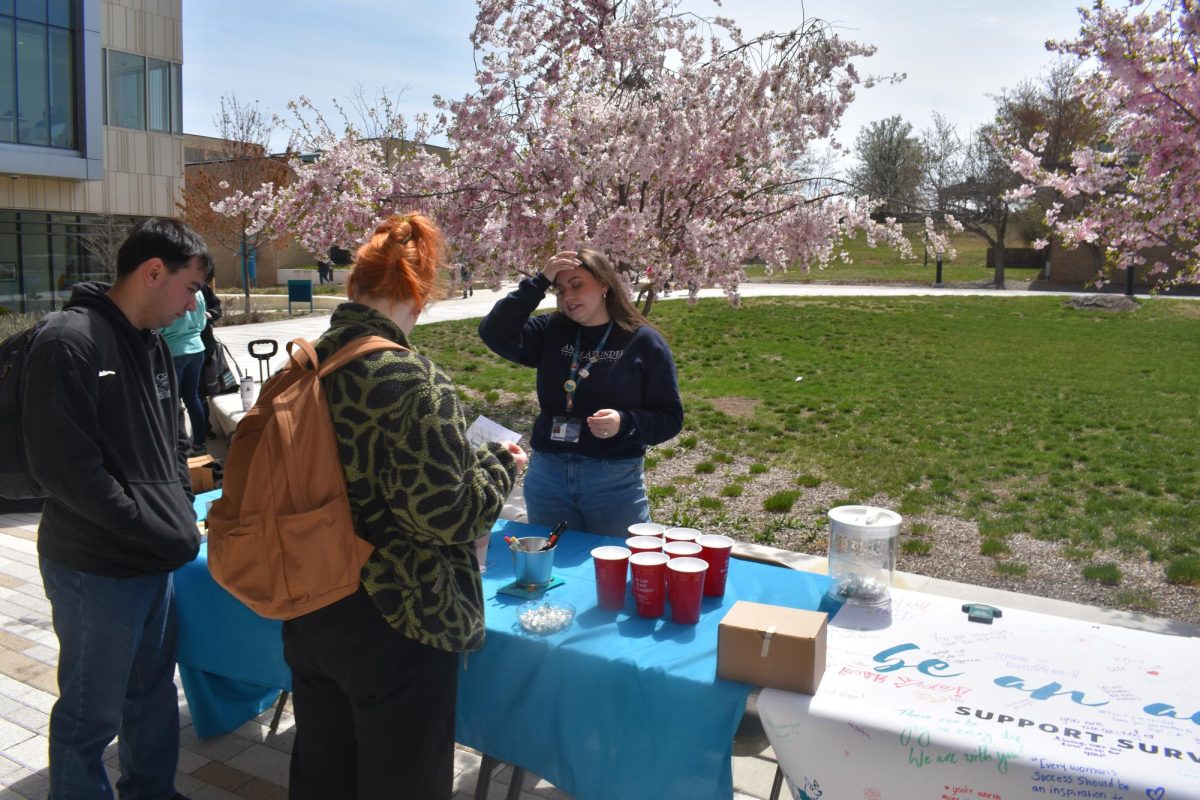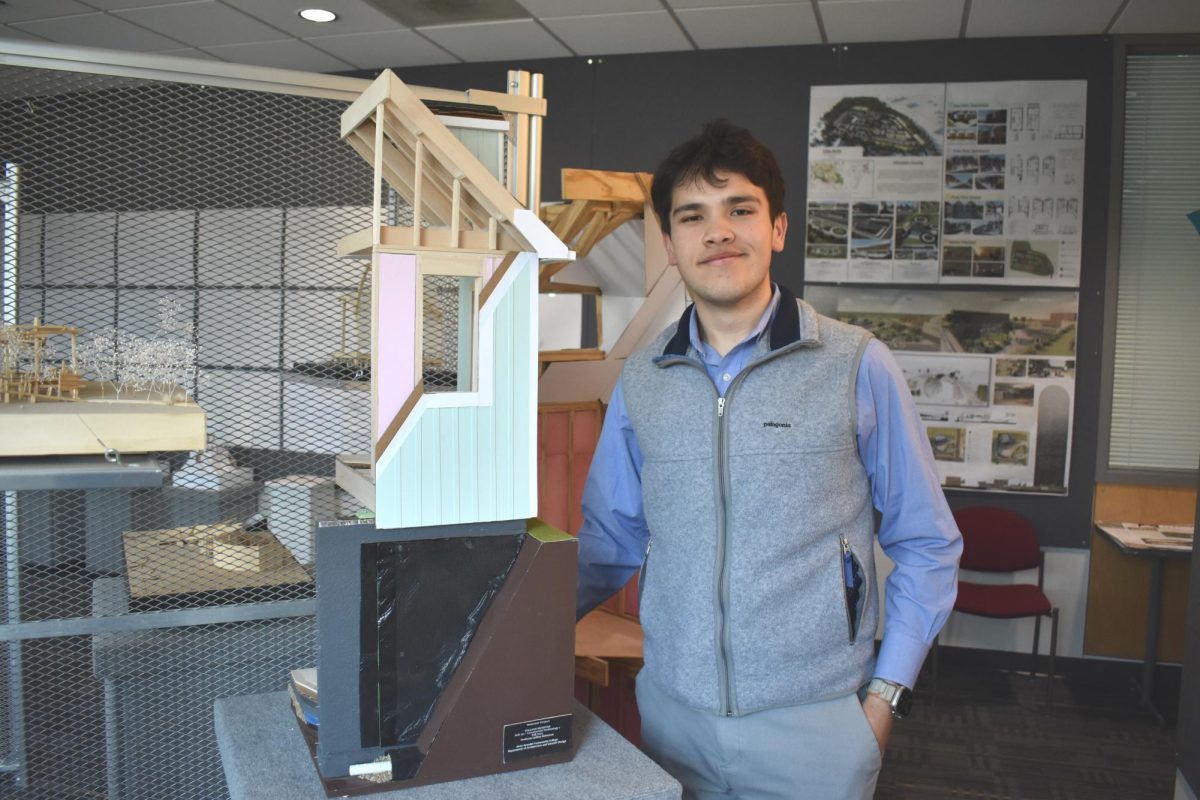This story contains mentions of sexual assault.
Students showed support for the prevention of sexual violence at an awareness event on Tuesday.
The Health and Wellness Center hosted the AACC Campus Day of Action Against Sexual Assault event to help create a culture of safety and support on campus for victims of sexual assault.
“Events like this are important because … community is the bread and butter of violence prevention,” Katie Keys, the project director of sexual violence prevention, said. “Community is what’s going to be able to prevent sexual assault.”
According to Keys, the main organizer of this event, Spring 2024 is the third time this event has been hosted.
“The first round didn’t go that well because it was still COVID times,” Keys said. “But it’s evolved quite a bit from then. We have a bunch more resources this year and fortunately there are a ton more students on campus this year.”
Building “connections” with students is a part of creating a community that will prevent sexual violence, according to Keys.
“It’s not just about building awareness around the prevalence of sexual violence. It’s [also about] building the connections with our community,” Keys said. “I’m able to meet new students so they know that I exist, that my program exists, and [that] I’m here for all of them.”
Oluronke Akeju, a first-year nursing student, agreed.
“People that experience any form of sexual assault … might be shy to come out and say things,” Akeju said. “This kind of program might help to boost people’s confidence … to come out and speak out.”
Akeju added, “Healing starts with speaking up.”
Shawn Grim, the director of the Health & Wellness Center, said the event provides education for “everyone that comes through” on campus, such as students, faculty and staff.
“Ultimately, [we are] providing resources to anyone that may now or in the future experience some type of [sexual] violence,” Grim said.
John Sines, a first-year nursing student, agreed.
“It is a problem that inexplicably continues in the modern age and it really shouldn’t,” Sines said. “I feel as though with a more educated population, consequences would be more dire [for sex criminals] and support for victims would be higher.”



